A guide to composting: Garden compost tips for beginners
More 55% of Canadians over 18, in varying age groups, are home gardeners, growing or cultivating plants at home, according to Mario Canseco, President of Research Co. This is in line with the 55% of American households that engage in gardening activities, per research conducted by Scotts Miracle-Gro and Wakefield Research. North American’s love their green thumbs, and that garden passion continues to grow.
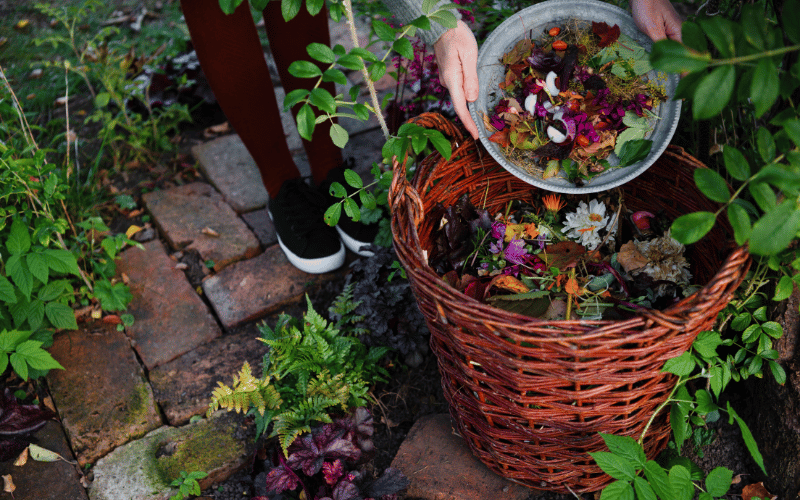
These statistics aren’t surprising when considering the mental, physical, emotional, and social benefits that come along with learning to garden. Ask any seasoned gardener, and many will tell you about the importance of garden compost and how it can positively affect both your lawn and garden.
According to the Environmental Protection Agency, around 94% of the food thrown away is combusted or sent to landfills, both of which release methane and harm the environment. Soil can act as a carbon sink, trapping it and keeping it out of the atmosphere, which helps fights climate change by reducing environmental impact.
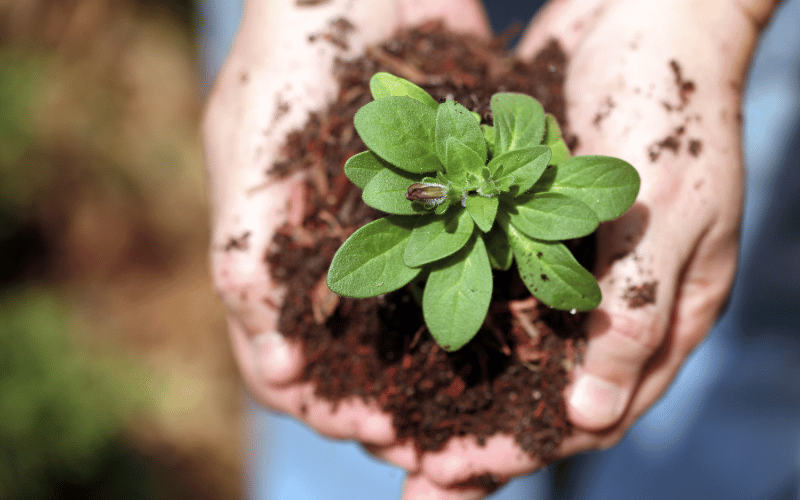
Incorporating garden compost to your gardening routine improves soil structure, contributes to a balanced source of plant nutrients and is also an investment towards your gardening practice. Here are some great garden compost tips for beginners.
Decide on the following:
- Will you have a compost heap, compost tumbler, wire-type bin, or high-quality rodent resistant compost bin?
- How are you collecting your food scraps?
- Where are you placing it in your backyard? You don’t need full sun – the only requirement is you don’t put it too close to a tree or other plant that can steal nutrients from it.
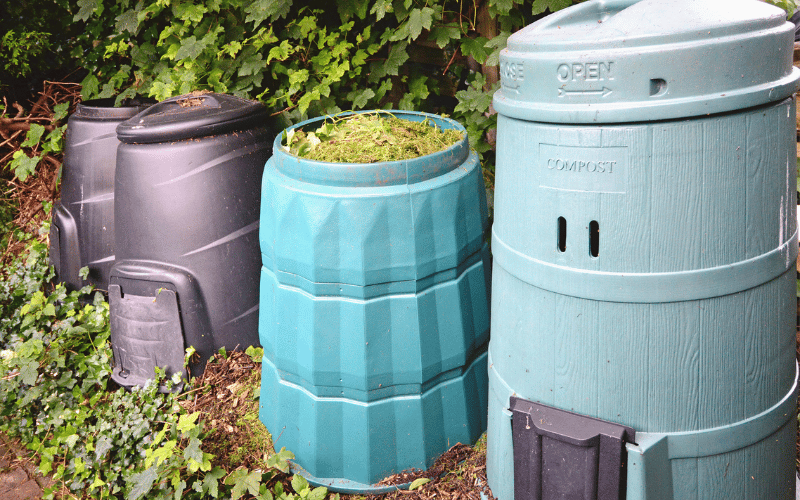
The next thing you need to keep in mind with your garden compost is to ensure that your compost bin or pile is level, well-draining, and accessible for worms; If you don’t have a lot of these, you might have to go out and buy some. Earth worms are your friend.
What to put in; and what to keep out?
Veggie peelings, fruit taste, tea bags, plant pruning’s, and grass cutting all make great greens to include in your compost pile. Cardboard egg cartons, scrunched paper, and fallen leaves all contribute fiber and carbon, and make good browns to put in your garden compost.
On the flipside, diseased plants, animal feces, dairy, and diapers don’t break down properly or provide the needed nutrients in garden compost, and can harm your lawn or garden, if the compost doesn’t reach a minimum of 140 degrees F. (60 C.) but not higher than 180 degrees F. (82 C.). Adding fungus or infected matter to your healthy garden can take it from thriving and healthy, to diseased very quickly. Also avoid adding meat scraps, fish, grease, or oil, as these can stink and can attract animals, and they don’t breakdown well during the composting process.
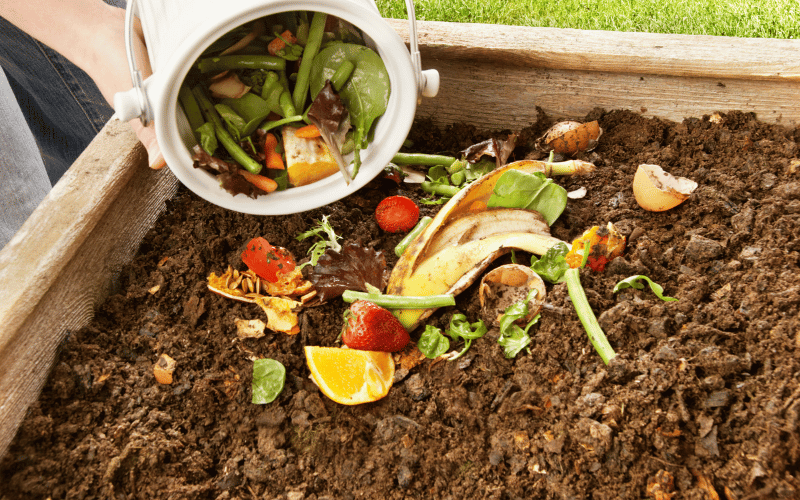
Speaking of what to put into your garden compost, you need to try to balance what you are putting in. Greens are nitrogen rich, and browns are carbon rich, and when they are closely equal, you get a better-quality compost. If your garden compost is too wet, add browns; or too dry, add greens until you hit a good mix of Carbon + Nitrogen + Water + Oxygen. You can still have good compost if you don’t get the math just right, but it can often take longer to achieve.
Quick tips for the best garden compost experience:
- Remove produce stickers before adding them to your compost pile – plastics don’t break down and don’t contribute to the quality of your compost.
- Chop big materials down as you add them to help them break down faster.
- Add a compost activator – alfalfa meal works well, is an inexpensive alternative, and doubles as a cat litter for your feline friends.
- When collecting your garden compost materials, empty it into the compost pile every few days, if it has filtered air flow, as fruit won’t be able to ferment properly.
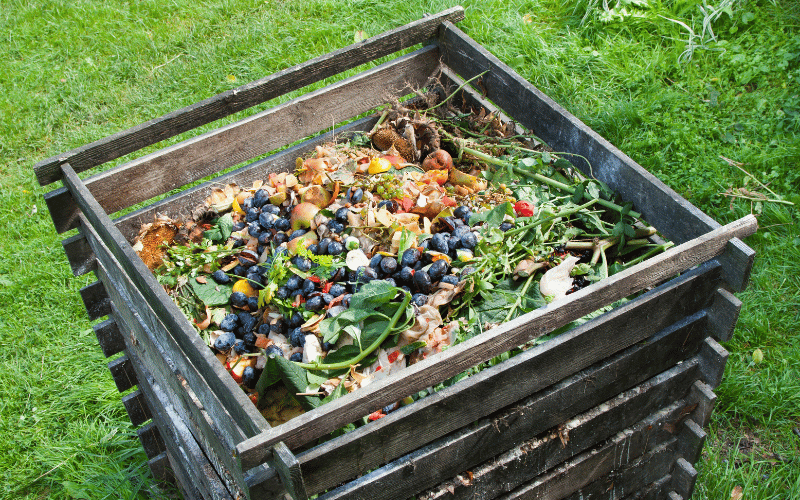
- Remember to turn, or aerate, your garden compost pile regularly.
- Maintain moisture levels – your compost should be as damp as a wrung-out sponge; but don’t soak it. If your compost bin isn’t retaining water, then you might need a lid added to it to reduce environmental evaporation.
- Monitor for fungus. Most mushrooms will not harm the compost, but some mushrooms can be toxic.
Once you have dark brown, almost black soil-like texture at the bottom, your garden compost is complete, and this is ready to be spread on your lawn or through your garden.
It’s not all sunshine and roses… yet.
- There will be a smell; as things decompose, it emits an odor.
- You could get lots of insects, which are drawn to the smell and nutrient-rich fertilizer. Hack: higher temps kill off bugs so keep your garden compost at a good temperature to deter those pests.
- Animals, like insects, will be drawn to your compost pile. Make sure you have an animal-proof lid.
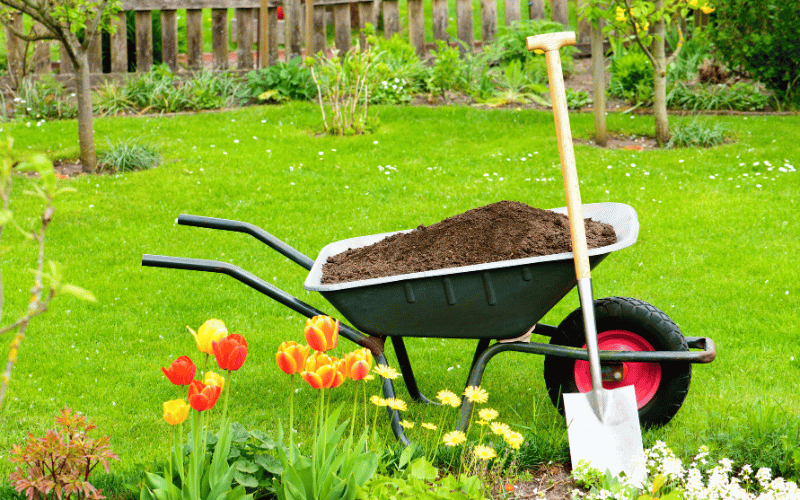
When you’re beginning your garden compost experience, it’s good to know that it takes between 6-12 months to create finished compost, so don’t get discouraged if things aren’t happening as quickly as you’d like.
If you’re looking to create your dream backyard garden, or even start your own garden compost experience, check out one of our home shows and talk to a garden or outdoor expert in a city near you.
)



